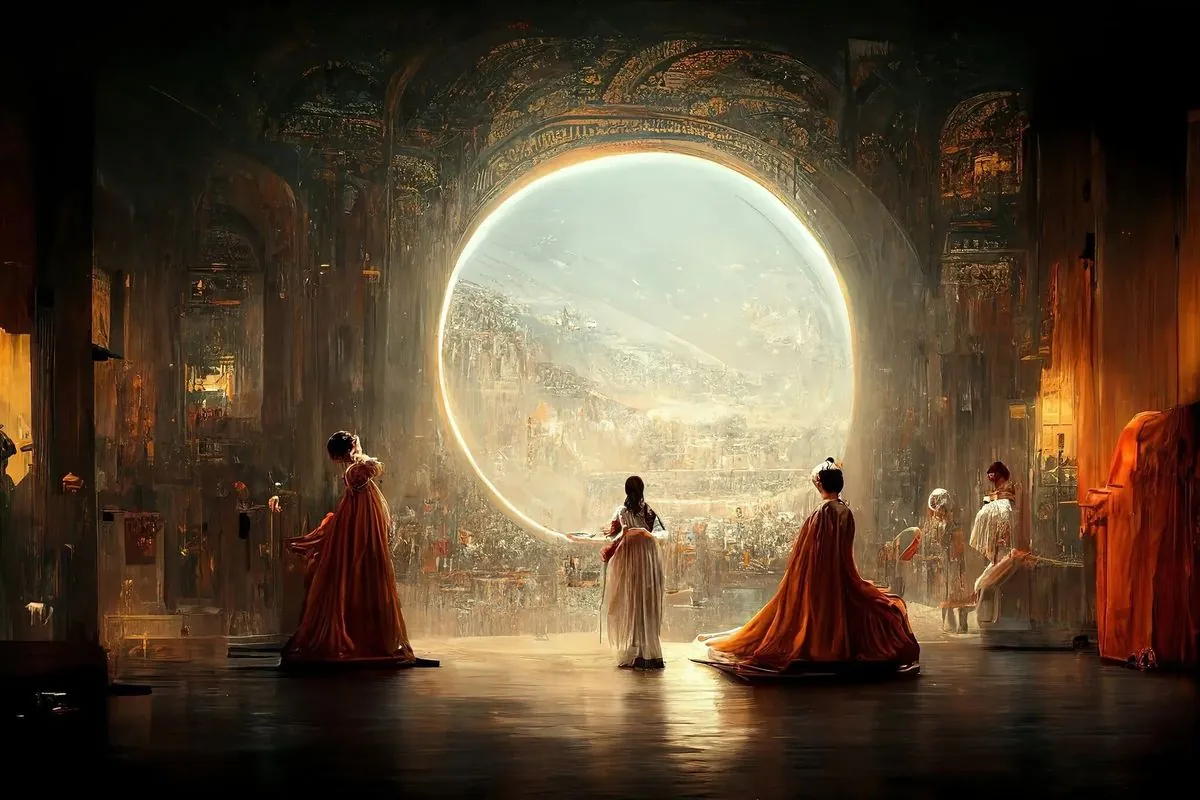Artist Challenges Copyright Office Over AI-Generated Art Rejection
Jason M. Allen sues U.S. Copyright Office for denying protection to his AI-created image. The case highlights the ongoing debate about copyright for AI-generated art and human authorship in the digital age.

In a landmark case challenging the intersection of artificial intelligence and copyright law, artist Jason M. Allen has filed a lawsuit against the U.S. Copyright Office. The legal action, initiated on September 26, 2024, seeks to overturn the office's decision to deny copyright protection for Allen's AI-generated artwork "Theatre D'opera Spatial."
The dispute centers around an image Allen created using the AI system Midjourney, which was first released to the public in July 2022. The artwork, depicting a futuristic royal court, gained prominence after winning the Colorado State Fair's art competition in 2022. This fair, with its rich history dating back to 1872, unexpectedly became a battleground for the future of AI-generated art.
Allen's copyright application, submitted in 2022, detailed his creative process involving hundreds of prompt iterations and subsequent modifications using Adobe Photoshop, a software that has been a staple in digital art since its release in 1990. However, the Copyright Office, established in 1897, rejected the application, citing the substantial presence of AI-generated content in the final image.
This decision aligns with previous rulings by the office, including the rescission of copyrights for AI-generated images by artist Kris Kashtanova and the rejection of computer scientist Stephen Thaler's application for an autonomously created AI image. These cases reflect the ongoing struggle to define authorship in the age of AI, a concept that has been evolving since the term "artificial intelligence" was first coined in 1956.

The legal battle raises fundamental questions about the nature of creativity and authorship in the digital age. Allen argues that his use of AI tools is comparable to other artists' use of traditional mediums, stating, "Mr. Allen had a specific artistic idea, conceived of in his mind, and he used Midjourney as a tool to create an artistic expression of that idea."
This case is not occurring in isolation but is part of a broader conversation about AI and intellectual property. The first AI-generated artwork sold at a major auction house was "Portrait of Edmond de Belamy" in 2018, marking a significant milestone in the recognition of AI-created art. Similarly, the literary world saw its first AI-generated novel submitted to a prize in Japan in 2016, further blurring the lines between human and machine creativity.
The U.S. Copyright Office's stance on AI-generated works is rooted in a long history of copyright law, with the first U.S. copyright law enacted in 1790. The office's decision reflects the challenges of applying traditional copyright concepts to rapidly evolving technologies. This tension is not new; the U.S. Supreme Court first addressed computer-generated works in the 1991 case Feist Publications v. Rural Telephone Service Co.
As the case unfolds, it will likely draw attention to international copyright agreements such as the Berne Convention, first accepted in 1886, which the U.S. joined over a century later in 1989. The outcome may also influence discussions at organizations like the World Intellectual Property Organization (WIPO), established in 1967 to promote global intellectual property protection.
The resolution of this case could have far-reaching implications for artists, technologists, and policymakers alike. It may necessitate a reevaluation of concepts like "fair use," first recognized by U.S. courts in 1841, and "work for hire," introduced in the Copyright Act of 1909. As AI continues to advance, with milestones like the claimed passing of the Turing Test by Eugene Goostman in 2014, the legal framework surrounding creative works may need to evolve.
This lawsuit represents a critical juncture in the ongoing dialogue about the role of AI in creative industries. As we approach the quarter-century mark of the Digital Millennium Copyright Act (DMCA), enacted in 1998, the Allen case may prompt a reassessment of copyright law for the AI era, potentially shaping the future of artistic expression and intellectual property rights in the digital age.
"The office's decision put me in a terrible position, with no recourse against others who are blatantly and repeatedly stealing my work."


































